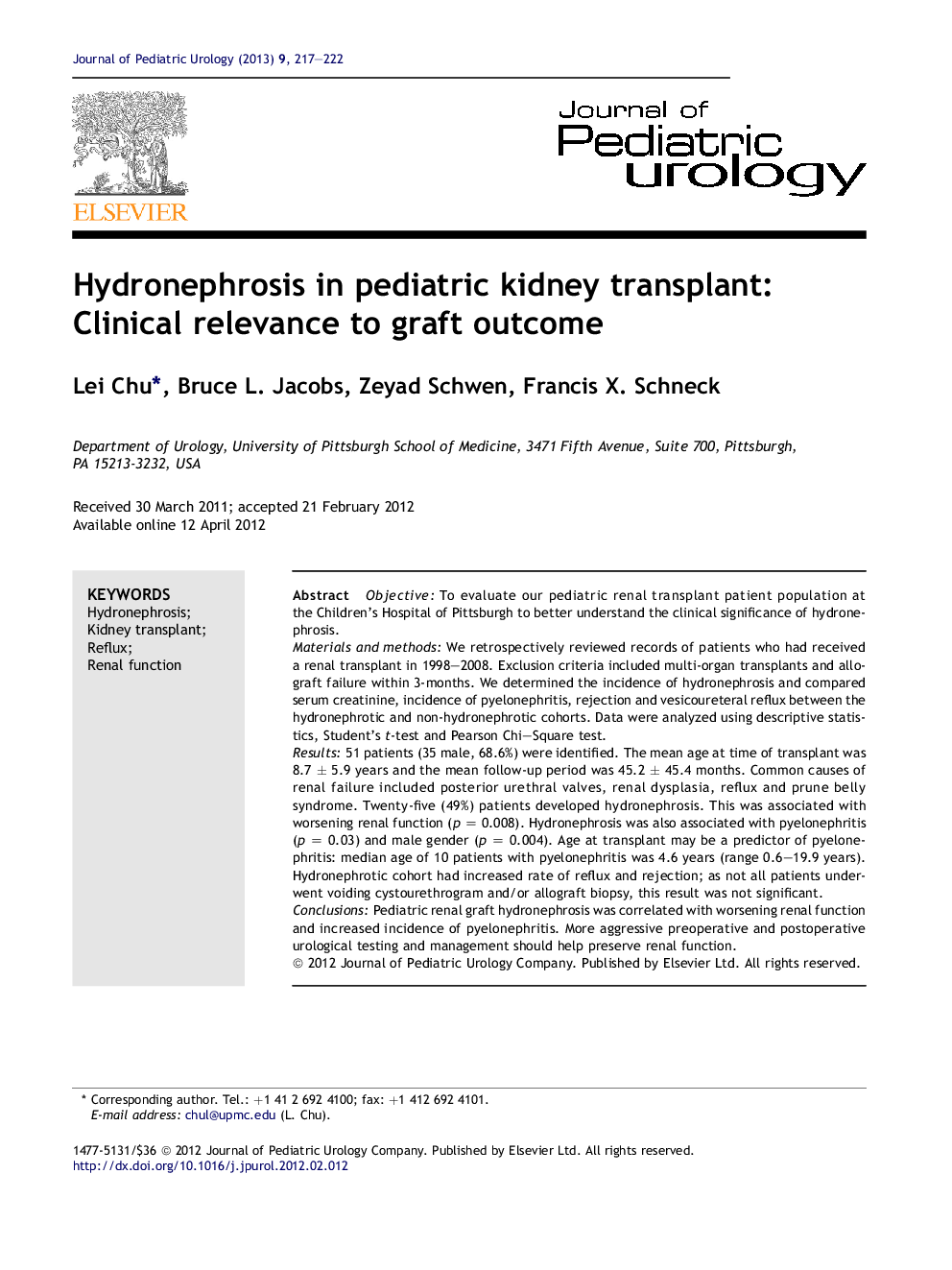| کد مقاله | کد نشریه | سال انتشار | مقاله انگلیسی | نسخه تمام متن |
|---|---|---|---|---|
| 6218458 | 1274280 | 2013 | 6 صفحه PDF | دانلود رایگان |
ObjectiveTo evaluate our pediatric renal transplant patient population at the Children's Hospital of Pittsburgh to better understand the clinical significance of hydronephrosis.Materials and methodsWe retrospectively reviewed records of patients who had received a renal transplant in 1998-2008. Exclusion criteria included multi-organ transplants and allograft failure within 3-months. We determined the incidence of hydronephrosis and compared serum creatinine, incidence of pyelonephritis, rejection and vesicoureteral reflux between the hydronephrotic and non-hydronephrotic cohorts. Data were analyzed using descriptive statistics, Student's t-test and Pearson Chi-Square test.Results51 patients (35 male, 68.6%) were identified. The mean age at time of transplant was 8.7 ± 5.9 years and the mean follow-up period was 45.2 ± 45.4 months. Common causes of renal failure included posterior urethral valves, renal dysplasia, reflux and prune belly syndrome. Twenty-five (49%) patients developed hydronephrosis. This was associated with worsening renal function (p = 0.008). Hydronephrosis was also associated with pyelonephritis (p = 0.03) and male gender (p = 0.004). Age at transplant may be a predictor of pyelonephritis: median age of 10 patients with pyelonephritis was 4.6 years (range 0.6-19.9 years). Hydronephrotic cohort had increased rate of reflux and rejection; as not all patients underwent voiding cystourethrogram and/or allograft biopsy, this result was not significant.ConclusionsPediatric renal graft hydronephrosis was correlated with worsening renal function and increased incidence of pyelonephritis. More aggressive preoperative and postoperative urological testing and management should help preserve renal function.
Journal: Journal of Pediatric Urology - Volume 9, Issue 2, April 2013, Pages 217-222
